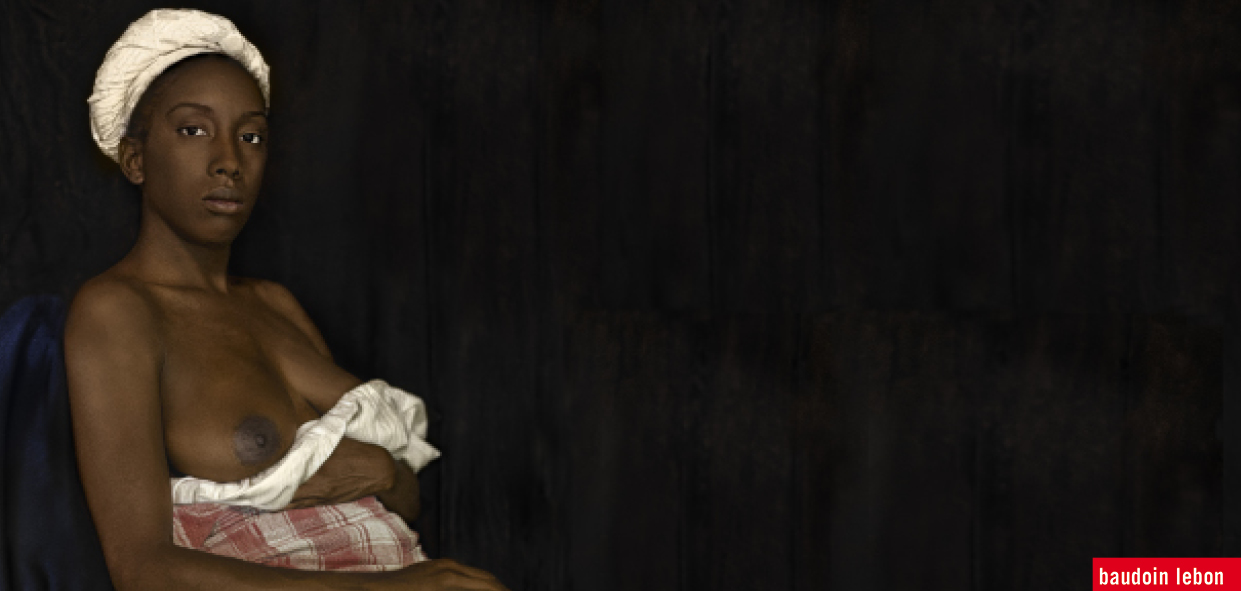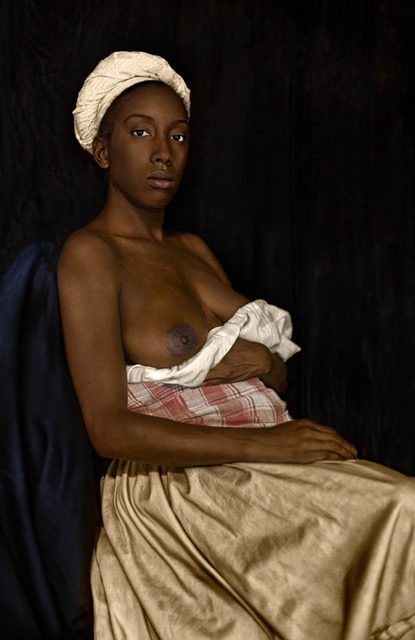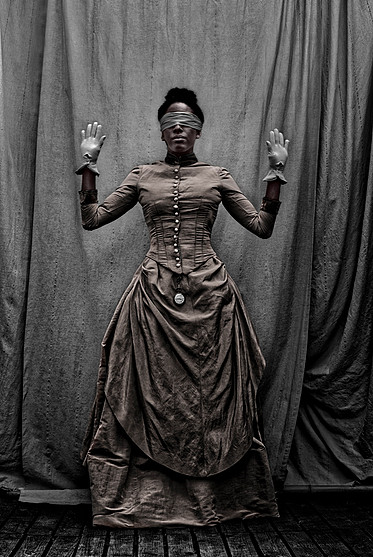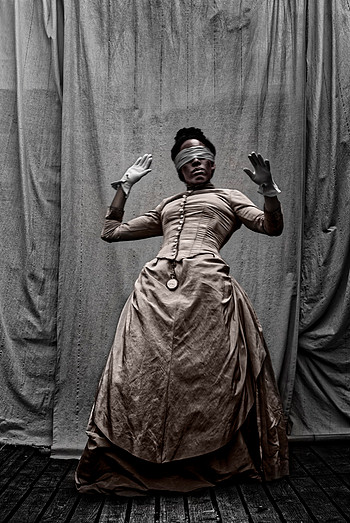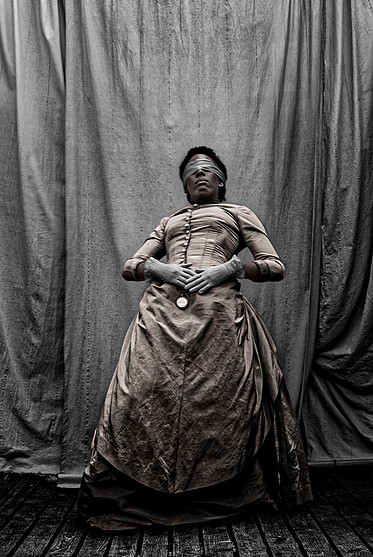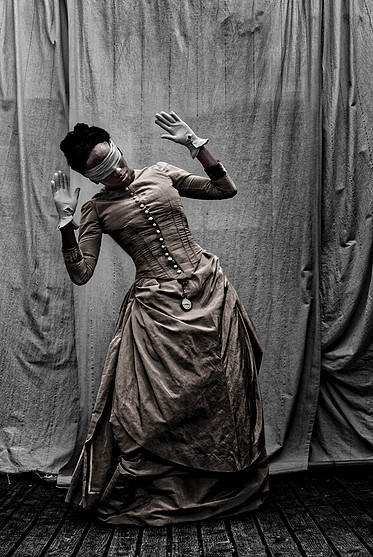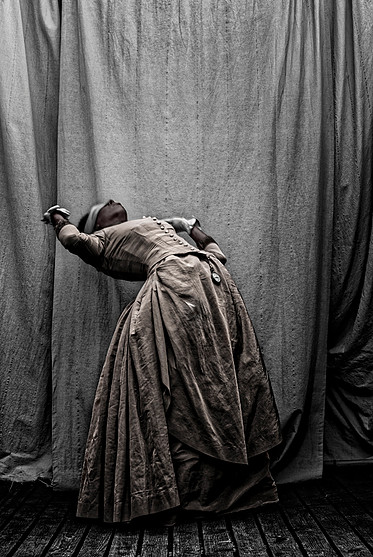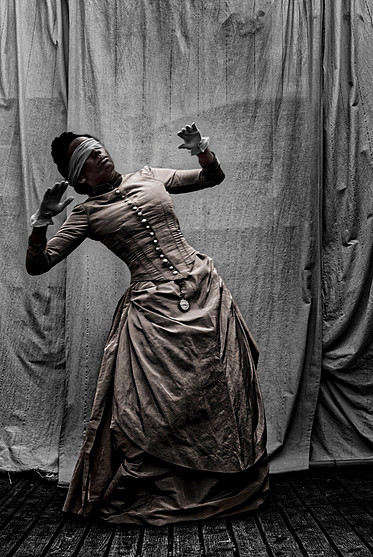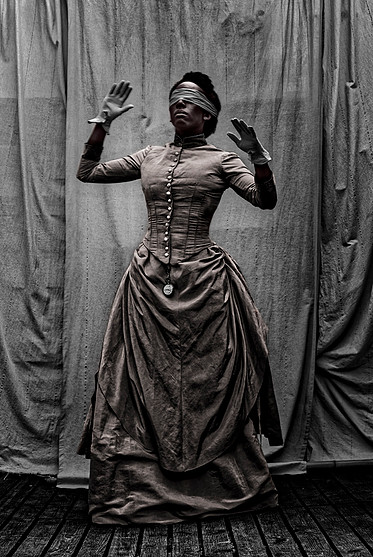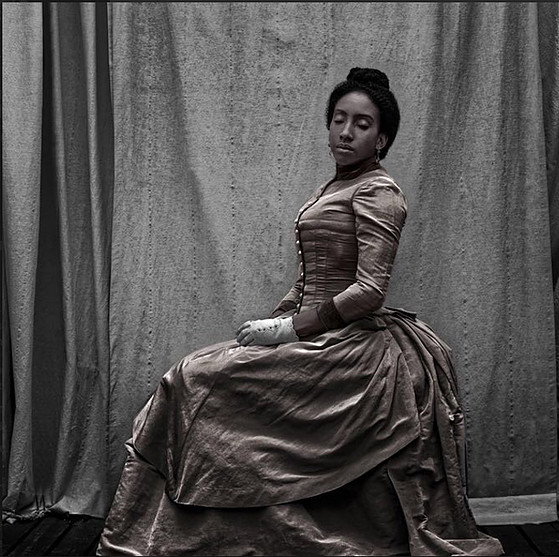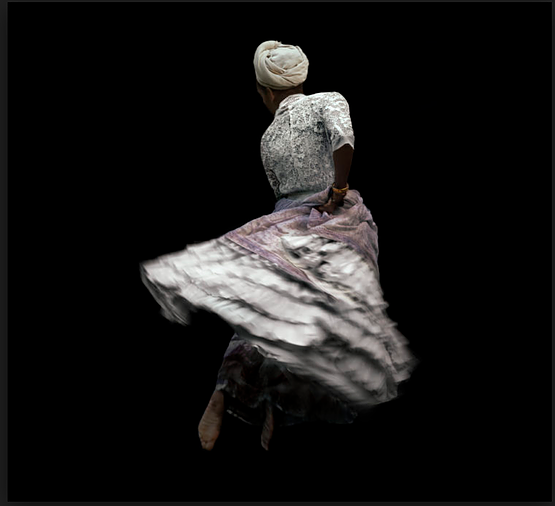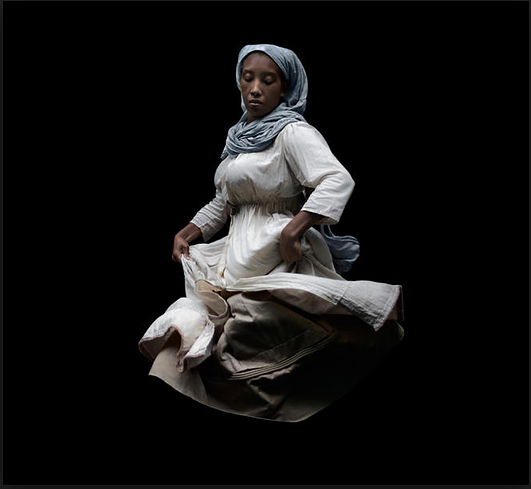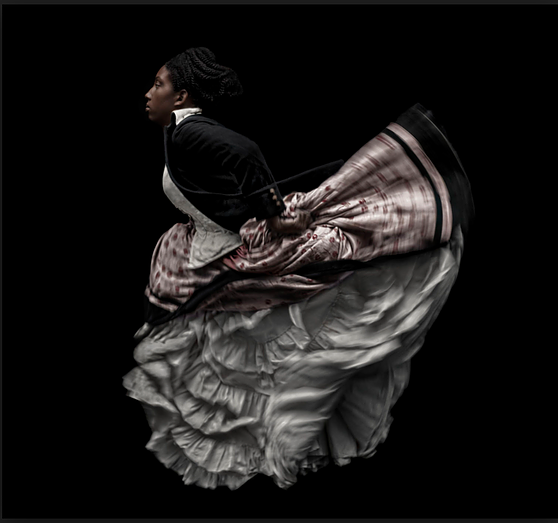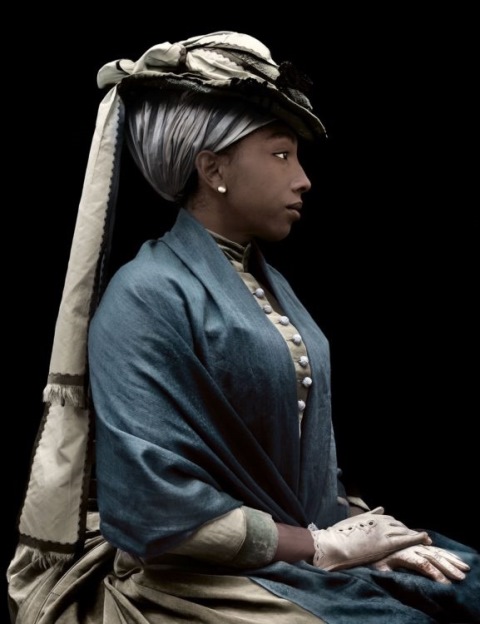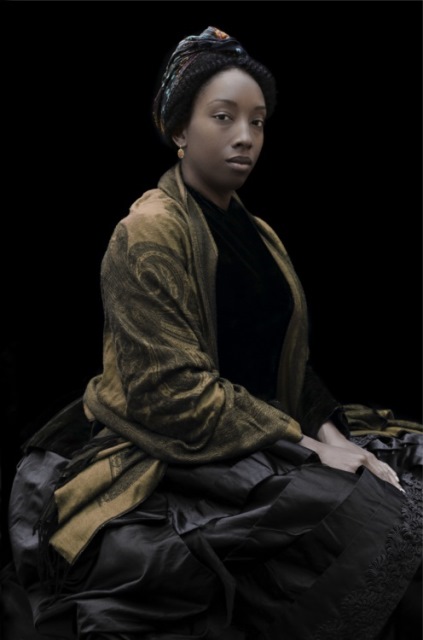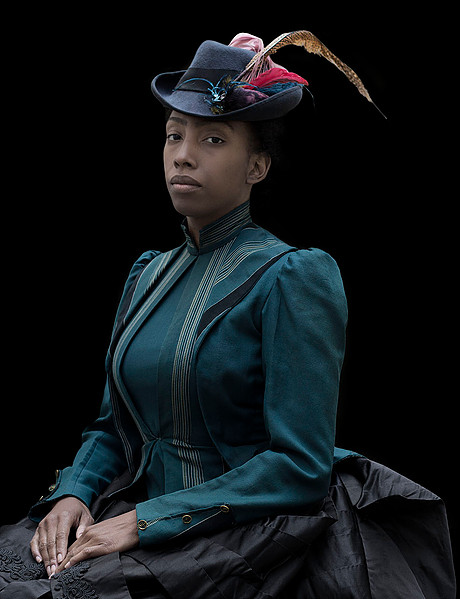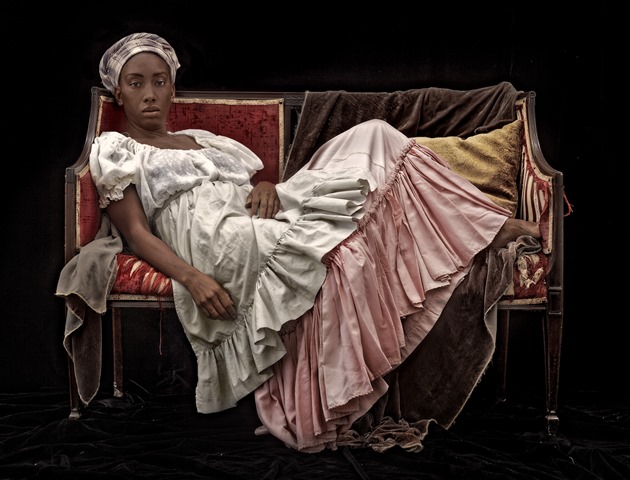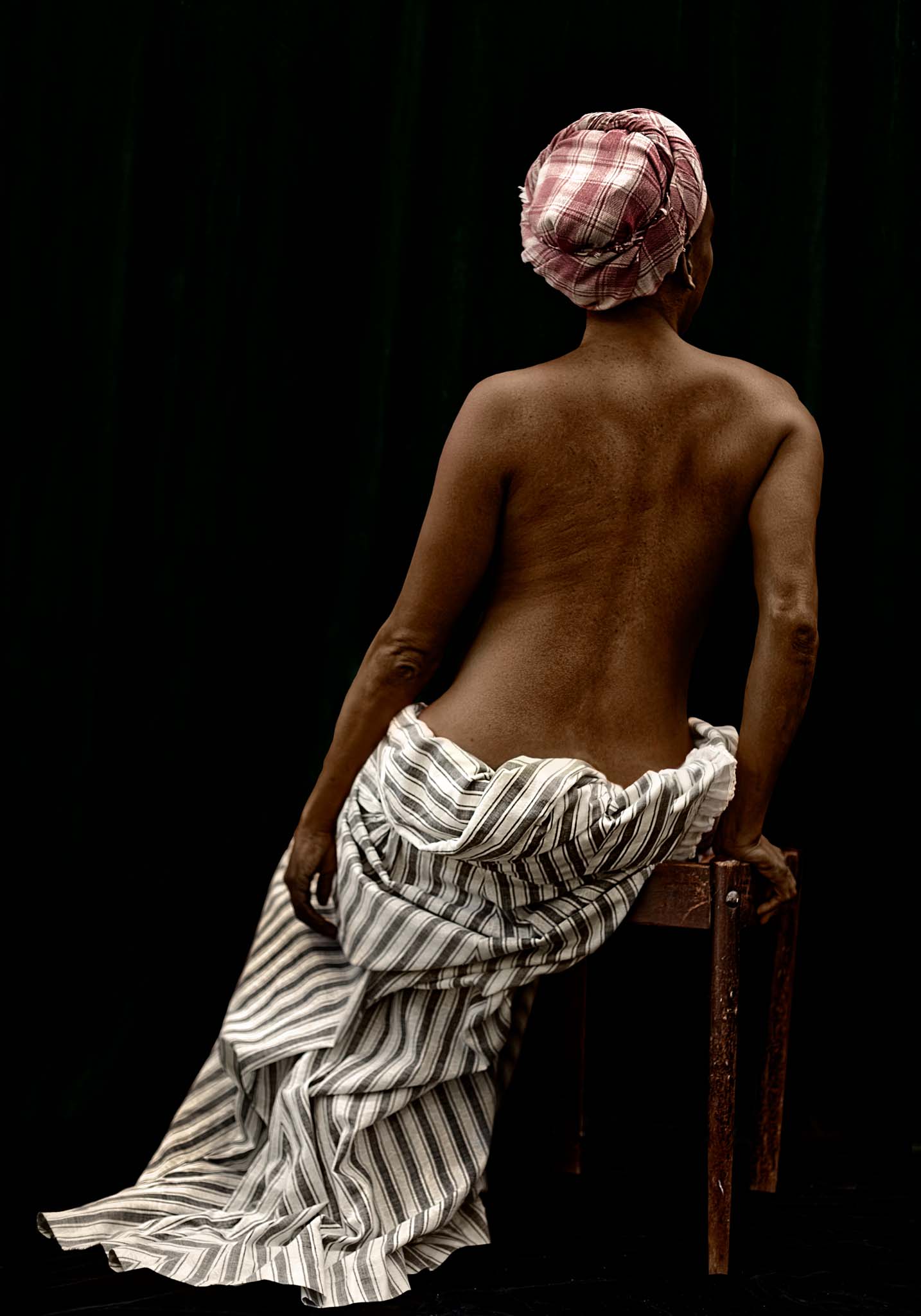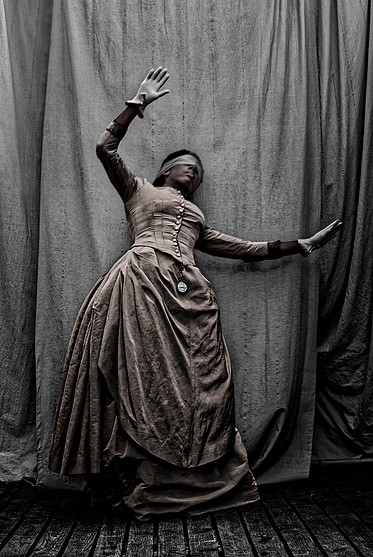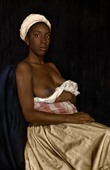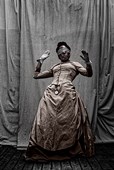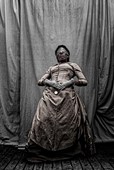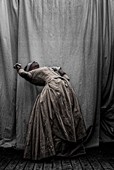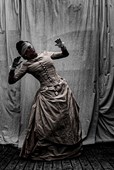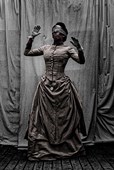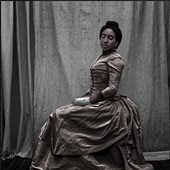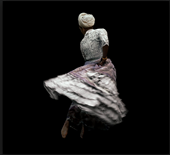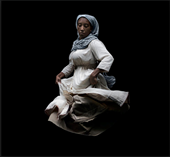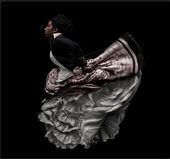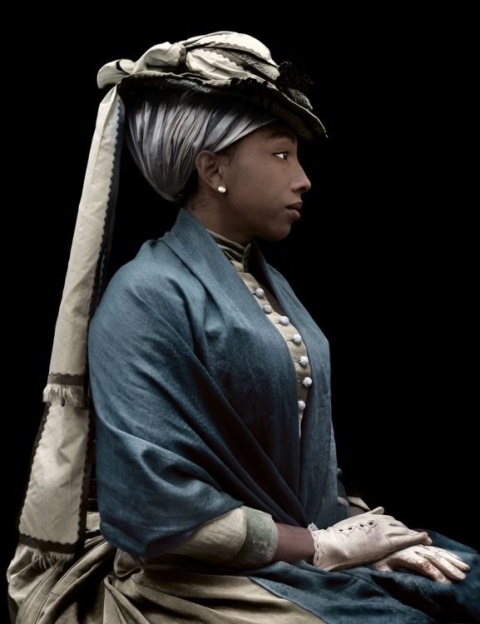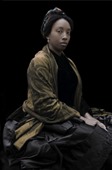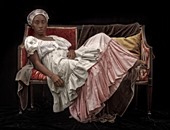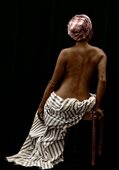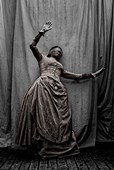Intimate justice in the stolen moment
02/16/2018 - 04/07/2018Ayana V. JACKSON /
The baudoin lebon Gallery displays the works of the American photograph Ayana V. Jackson, whom presents a new serie: Intimate justice in the stolen moment.
One can find here the artist’s strong will to present herself as the only model. She reproduces herself in different characters, positions, and outfits, in still or moving positions.
Ayana, whom educational background in sociology influences her artistic work, uses photography to understand the black American woman’s representation throughout her history.
The artistic works displayed here were produced between 2015 and 2017. This unique work is distant from her previous stage settings, in which the body was seen as dehumanized.
Self-portraits and the quest to intimacy
Ayana’s work is obviously a matter of self-portraits.
The creative process is consistently the same: alone in front of the camera, she triggers herself the self-timer, thus becoming both the artist and the subject. Ayana’s body, whether clothed or nude, is a tool, an excuse for figuration, for representation. The subject is not the body but the testimony, the presence settled in DNA and in history revealing the need to a personal and deep justice.
Referring to pictorial art and photographic history
The photograph through her inspiration by reference pictures, commits herself, without falling into extreme feminism, against an occidental collective consciousness, still filled with clichés.
Anaya V. Jackson invites one to renew one’s critical look and encourage one to be more careful about these occidental clichés, still well established.
She draws on her own knowledge, especially onto History and artworks.
For instance with Lucy, Ayana, to a certain extent, reinterprets and corrects the Portrait of a Black Woman (previously titled Portrait of a Nigger), realized by Marie-Guillemine Benoist. In 1800, at the time the portrait had been revealed, it triggered multiple reactions.
Indeed, the famous controversy which was raised by the portrait was born from this central presence, the honest look of a black woman, which symbolized the colonies’ memory and slavery. Nowadays, Ayana still questions clichés tied to representation and takes the same posture as the woman whom, two centuries before, took part in the evolution of minds.
Ayana V. Jackson stares at the audience to prove her implication, her artistic belongings, thus referring to pictorial or photographical chefs-d’oeuvre, such as the Olympia of Edouard Manet which proudly confronts her nudity to its beholder. Or even Jean-Auguste Dominique Ingres’ painting: La Grande Baigneuse, without forgetting Edward Muybridge’s famous photographs which one can see in her series: To kill or Allow to live, 2016.




